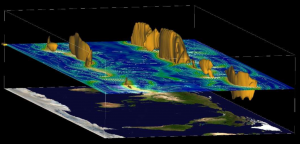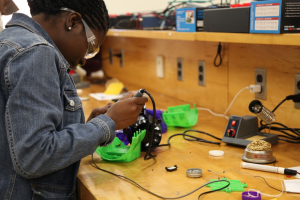Periscope Lab Research
Our vision is to break down barriers that are discouraging creative, intelligent people from pursuing engineering and computing degrees. We need new and diverse ideas to solve today’s grand challenges, but academic barriers, such as learning to program, and social barriers, such as stereotypes, work against engineering recruitment and retention efforts.
We conduct research on writing to improve processes for learning to program.
By making thinking visible, writing supports feedback and assessment mechanisms for programming instructors, enables metacognition for students in programming courses, and facilitates collaboration between team members coding different portions of software. Prior programming writing efforts focus on source code documentation, but we focus on writing as communication to improve instructional processes for learning to program.
We conduct research on real-time data analysis to inform instruction.
How can computing and digital devices support engineering education? From immersive virtual reality headsets to wearable sensors, we consider the ways that digital systems can provide real-time feedback and be relevant for virtual classrooms in both workforce training and traditional academic contexts.
We conduct research to increase participation in engineering and computing.
What are the lasting impacts that K-12 outreach, engineering courses, purposeful community building, and other support structures have on graduation outcomes for all students?
Current Projects
3D Weather Analysis and Visualization

Funding: National Science Foundation Award #1934194
Periscope Lab Students: Chase Robinson News: MSU Receives Grant for Stem Education
Past Projects
Understanding Engineering Pathways and their Impact on Community and Identity

Funding: National Science Foundation Award #1664264
Periscope Lab Students: Soundouss Sassi, Shaylin Williams
